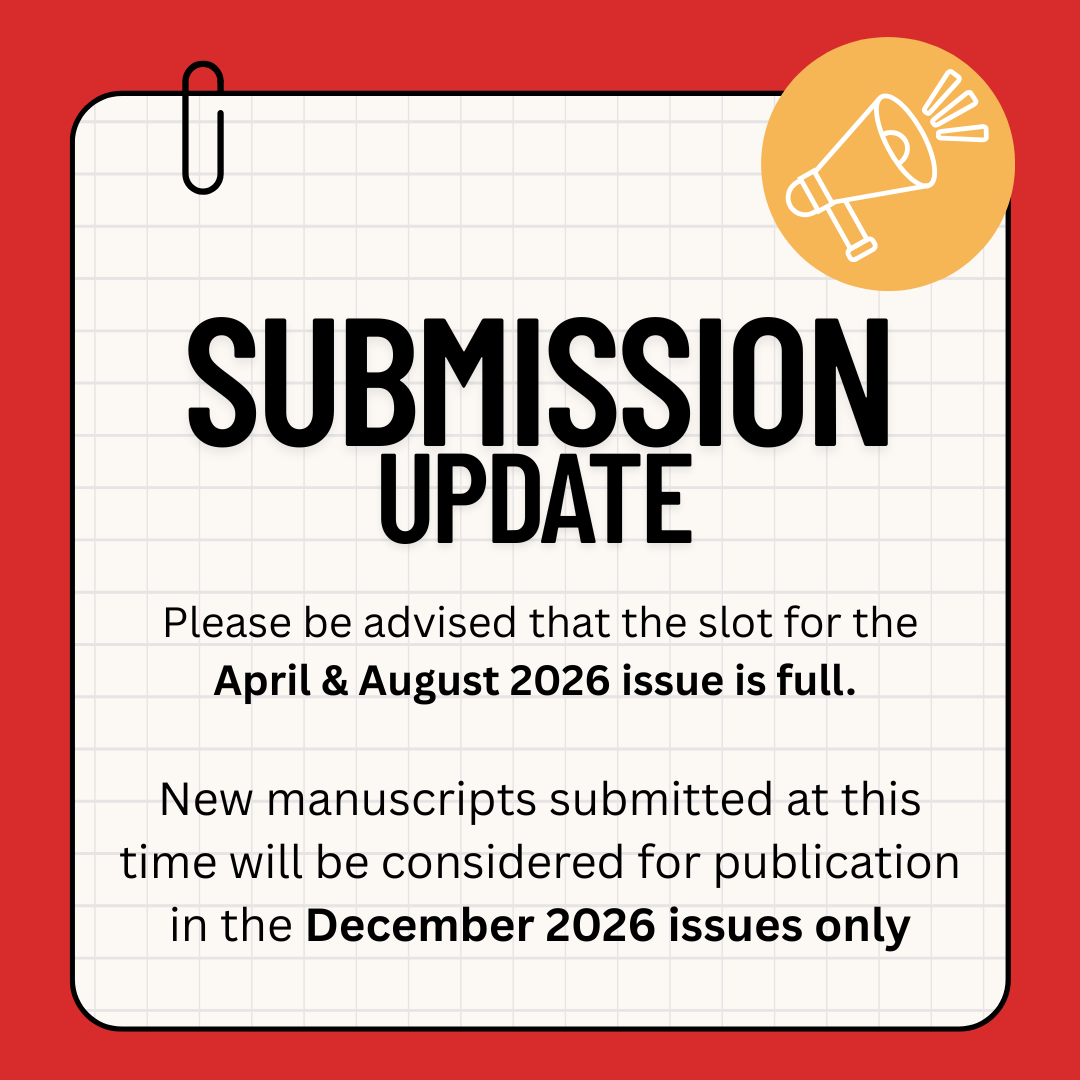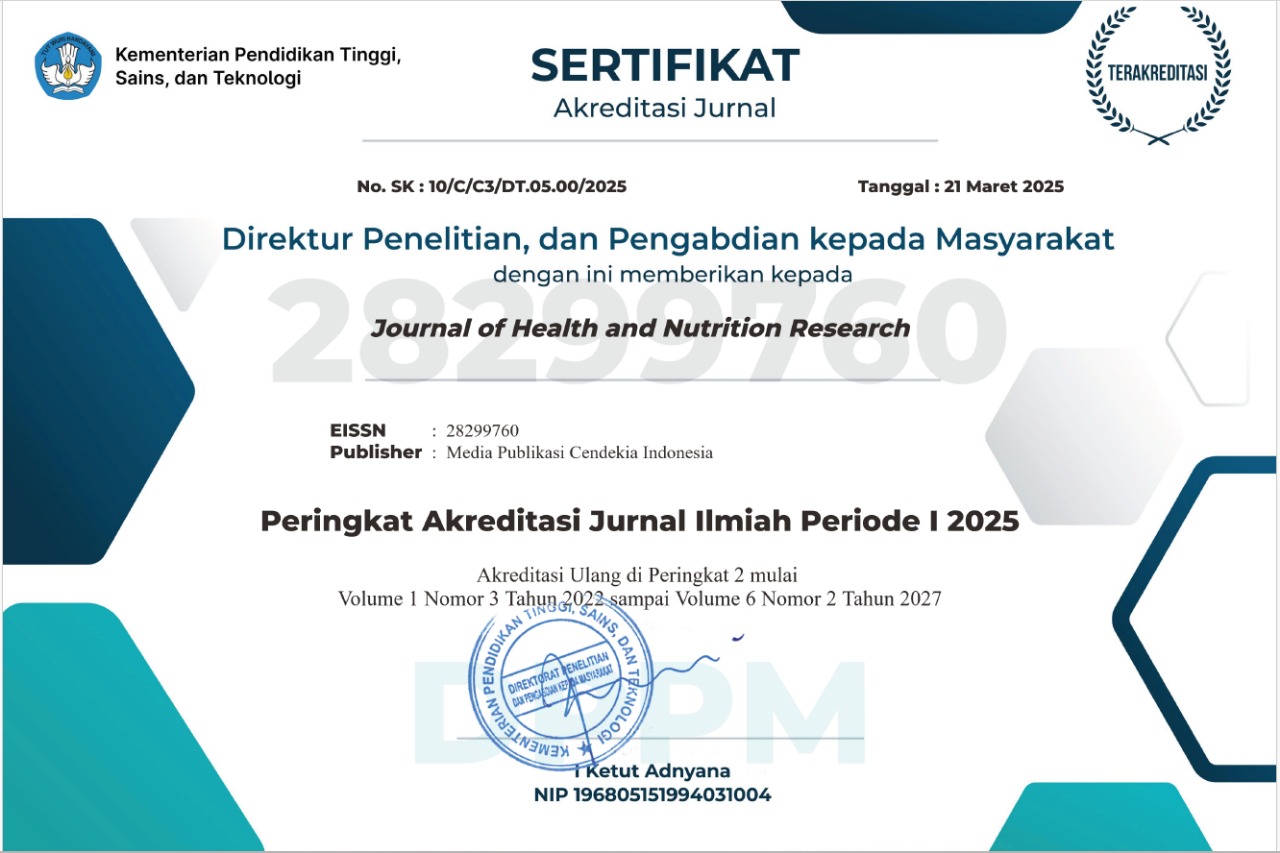The Role of Local Communities in Responding to Health Crises and Disaster Mitigation: A Systematic Literature Review
Keywords:
Local communities, disaster management, health crises, community engagement, resilienceAbstract
Health crises and natural disasters increasingly threaten communities worldwide, exacerbated by urbanization, climate change, and the vulnerability of populations in high-risk areas. Urban poor communities, in particular, are at heightened risk, making robust frameworks for health impact assessments essential. Local communities, with their deep understanding of social, cultural, and geographic dynamics, play a crucial role in disaster and health crisis management. Their involvement enhances resilience, facilitates timely responses, and supports post-disaster recovery, as demonstrated during the COVID-19 pandemic and natural disasters like floods and earthquakes. Despite the significant potential of local communities, challenges such as limited resources, poor coordination, and insufficient policy support hinder their effectiveness. This Systematic Literature Review (SLR) explores the roles and contributions of local communities in responding to health crises and disasters, identifying successful strategies, key influencing factors, and gaps in the current research. The review emphasizes the importance of empowering local communities through effective training, resource management, and cross-sector collaboration. The findings provide valuable insights for policymakers and stakeholders, offering guidance on strengthening community involvement as an integral component of health crisis and disaster mitigation strategies. The active engagement of local communities, supported by government policies, education, and strong networks, is essential for building resilient societies capable of managing future health and environmental challenges.
Downloads
References
Esterwood, E., & Saeed, S. A. (2020). Past epidemics, natural disasters, COVID19, and mental health: learning from history as we deal with the present and prepare for the future. Psychiatric quarterly, 91(4), 1121-1133.
Williams, D., Costa, M., Sutherland, C., Celliers, L., & Scheffran, J. (2019). Vulnerability of informal settlements in the context of rapid urbanization and climate change. Environment & Urbanization, 31, 157 - 176. https://doi.org/10.1177/0956247818819694.
Haigh, F., Harris-Roxas, B., & Leeuw, E. (2020). Understanding vulnerability in the context of climate change – a Health impact Assessment Framework. European Journal of Public Health, 30. https://doi.org/10.1093/eurpub/ckaa165.513
Kidd, S. A., Bezgrebelna, M., Hajat, S., Keevers, L., Ravindran, A., Stergiopoulos, V., … McKenzie, K. (2023). A response framework for addressing the risks of climate change for homeless populations. Climate Policy, 23(5), 623–636. https://doi.org/10.1080/14693062.2023.2194280
Yang, L., Liu, C., Bi, P., Vardoulakis, S., & Huang, C. (2020). Local actions to health risks of heatwaves and dengue fever under climate change: Strategies and barriers among primary healthcare professionals in southern China. Environmental Research, 187, 109688. https://doi.org/10.1016/j.envres.2020.109688
Opoku, S., Leal Filho, W., Hubert, F., & Adejumo, O. O. (2021). Climate Change and Health Preparedness in Africa: Analysing Trends in Six African Countries. International Journal of Environmental Research and Public Health, 18. https://doi.org/10.3390/ijerph18094672
Paton, D., & Johnston, D. (2017). Disaster resilience: An integrated approach. Springer. https://doi.org/10.1007/978-1-4020-8501-4
Almeida, M., Peres, F., & Magalhães, R. (2020). Community responses in public health crises: Insights from COVID-19 pandemic. International Journal of Public Health, 65, 731-733. https://doi.org/10.1007/s00038-020-01369-5
Archuleta, S., Allison-Burbank, J. D., Ingalls, A., Begay, R., Begaye, V., Howe, L., Tsosie, A., Keryte, A. P., & Haroz, E. E. (2024). Baseline Sociodemographic Characteristics and Mental Health Status of Primary Caregivers and Children Attending Schools on the Navajo Nation During COVID-19. In The Journal of school health (Vol. 94, Nomor 9, hal. 808–819). https://doi.org/10.1111/josh.13487
Shaw, R., Takeuchi, Y., & Sharma, A. (2014). Community-based disaster risk reduction. Emerald Group Publishing. https://doi.org/10.1108/S2040-726220140000016007.
Cretney, R. M. (2016). Local responses to disaster: The value of community-led post-disaster response action in a resilience framework. Disaster Prevention and Management, 25(1), 27–40. https://doi.org/10.1108/DPM-02-2015-0043.
Pramono, J., Kusumastuti, D., Sekarwangi, M., & Choerudin, A. (2020). The Community Participation in Disaster Mitigation to Managing the Impact of Natural Disasters in Indonesia. Talent Development & Excellence, 12(2s), 2396–2403.
Downey, D. C., & Myers, W. M. (2020). Federalism, intergovernmental relationships, and emergency response: A comparison of Australia and the United States. The American Review of Public Administration, 50(6-7), 526-535.
Ramjee Parajulee, Sara Shneiderman, R. S. (2020). Forging Community Through Disaster Response: Nepali Canadians and the 2015 Earthquakes. 3(3), 11–31.
Dasanayaka, U., & Matsuda, Y. (2022). Role of social capital in local knowledge evolution and transfer in a network of rural communities coping with landslide disasters in Sri Lanka. International Journal of Disaster Risk Reduction, 67, 102630.
Räsänen, A., Lein, H., Bird, D., & Setten, G. (2020). Conceptualizing community in disaster risk management. International Journal of Disaster Risk Reduction, 45(October 2019). https://doi.org/10.1016/j.ijdrr.2020.101485
Rifai, Abdul Hakim, Sarwono, M. R. c. (2021). Supporting and Inhibiting Factors in the Post-Disaster Recovery Policy Based on Local Community Empowerment. JOURNAL OF SOUTHWEST JIAOTONG UNIVERSITY, 56(6), 265–294. https://doi.org/10.35741/ISSN.0258-2724.56.6.81
Obeagu, E. I., & Obeagu, G. U. (2024). Mental Health and Psychosocial Effects of natural disaster on HIV Patients. Sciences, 4(1), 38-44.
Guilaran, J., de Terte, I., Kaniasty, K., & Stephens, C. (2018). Psychological Outcomes in Disaster Responders: A Systematic Review and Meta-Analysis on the Effect of Social Support. International Journal of Disaster Risk Science, 9(3), 344–358. https://doi.org/10.1007/s13753-018-0184-7
Moghaddam, P. S., Sohrabizadeh, S., Jahangiri, K., & Nazari, S. S. H. (2022). Community-Based Disaster Health Management Approaches: A Systematic Literature Review. Journal of Iranian Medical Council.
Rayeni, E. B., Poursaeed, M. M., Kazemi, M., Ebrahimi, M., & Rafsanjani, N. (2021). Community-based Crisis Management Model Focusing on the Process of Relief and Rescue in Natural Disasters in Iran. Journal of Rescue and Relief, 13(4), 302–311. https://doi.org/10.32592/jorar.2021.13.4.7
Corbin, J. H., Oyene, U. E., Manoncourt, E., Onya, H., Kwamboka, M., Amuyunzu-Nyamongo, M., Sørensen, K., Mweemba, O., Barry, M. M., Munodawafa, D., Bayugo, Y. V., Huda, Q., Moran, T., Omoleke, S. A., Spencer-Walters, D., & Van Den Broucke, S. (2021). A health promotion approach to emergency management: effective community engagement strategies from five cases. Health Promotion International, 36, I24–I38. https://doi.org/10.1093/heapro/daab152
Gagnon, E., O’Sullivan, T., Lane, D. E., & Paré, N. (2016). Exploring partnership functioning within a community-based participatory intervention to improve disaster resilience. Journal of Higher Education Outreach and Engagement, 20(2), 25–54.
Budosan, B., O’Hanlon, K. P., & Aziz, S. (2014). Improving access to community-based mental health care and psychosocial support within a disaster context. Disaster Health, 2(1), 25–34. https://doi.org/10.4161/dish.27805
Math, S., Nirmala, M., Moirangthem, S., & Kumar, N. (2015). Disaster management: Mental health perspective. Indian Journal of Psychological Medicine, 37(3), 261–271. https://doi.org/10.4103/0253-7176.162915
Cuthbertson, J., Archer, F., Robertson, A., & Rodriguez-Llanes, J. (2023). A Socio-Health Approach to Improve Local Disaster Resilience and Contain Secondary Crises: A Case Study in an Agricultural Community Exposed to Bushfires in Australia. Prehospital and Disaster Medicine, 38(1), 3–10. https://doi.org/10.1017/S1049023X22002436
Dickmann, P., Kitua, A., Apfel, F., & Lightfoot, N. (2018). Kampala manifesto: Building community-based One Health approaches to disease surveillance and response-The Ebola Legacy-Lessons from a peer-led capacity-building initiative. In PLoS neglected tropical diseases (Vol. 12, Nomor 4). https://doi.org/10.1371/journal.pntd.0006292
Ivbijaro, G., Brooks, C., Kolkiewicz, L., Sunkel, C., & Long, A. (2020). Psychological impact and psychosocial consequences of the COVID 19 pandemic Resilience, mental well-being, and the coronavirus pandemic. Indian journal of psychiatry, 62(Suppl 3), S395-S403.
Goodwin, E., & Kraft, K. (2022). Mental health and spiritual well-being in humanitarian crises: the role of faith communities providing spiritual and psychosocial support during the COVID-19 pandemic. Journal of International Humanitarian Action, 7(1), 21.
Dzigbede, K. D., Gehl, S. B., & Willoughby, K. (2020). Disaster resiliency of US local governments: Insights to strengthen local response and recovery from the COVID‐19 pandemic. Public administration review, 80(4), 634-643.
Bateman, R. M., Sharpe, M. D., Jagger, J. E., Ellis, C. G., Solé-Violán, J., López-Rodríguez, M., Herrera-Ramos, E., Ruíz-Hernández, J., Borderías, L., Horcajada, J., González-Quevedo, N., Rajas, O., Briones, M., Castro, F. R. de, Gallego, C. R., Esen, F., Orhun, G., Ozcan, P. E., Senturk, E., … Nee, P. (2016). 36th International Symposium on Intensive Care and Emergency Medicine : Brussels, Belgium. 15-18 March 2016. In Critical care (London, England) (Vol. 20, hal. 94). https://doi.org/10.1186/s13054-016-1208-6
Astuti, S. J. W., Dwiningwarni, S. S., & Atmojo, S. (2025). Modeling environmental interactions and collaborative interventions for childhood stunting: A case from Indonesia. Dialogues in Health, 6, 100206.
Fu, Q., & Zhang, X. (2024). Promoting community resilience through disaster education: Review of community-based interventions with a focus on teacher resilience and well-being. PLoS one, 19(1), e0296393.
Perera, D., Agnihotri, J., Seidou, O., & Djalante, R. (2020). Identifying societal challenges in flood early warning systems. International Journal of Disaster Risk Reduction, 51, 101794.
Barker, K. M., Ling, E. J., Fallah, M., VanDeBogert, B., Kodl, Y., Macauley, R. J., ... & Kruk, M. E. (2020). Community engagement for health system resilience: evidence from Liberia’s Ebola epidemic. Health policy and planning, 35(4), 416-423.
Gray, B., Eaton, J., Christy, J., Duncan, J., Hanna, F., & Kasi, S. (2021). A proactive approach: Examples for integrating disaster risk reduction and mental health and psychosocial support programming. International journal of disaster risk reduction, 54, 102051.
Story, W. T., Tura, H., Rubin, J., Engidawork, B., Ahmed, A., Jundi, F., ... & Abrha, T. H. (2020). Social capital and disaster preparedness in Oromia, Ethiopia: An evaluation of the “Women Empowered” approach. Social Science & Medicine, 257, 111907.
Khazaee-Pool, M., Pashaei, T., & Ponnet, K. (2023). Social innovation in health and community-driven engagement as a key strategy for addressing COVID-19 crisis challenges: insights and reflections from the multicultural society of Iran. Frontiers in Public Health, 11, 1174385.
Fu, Q., & Zhang, X. (2024). Promoting community resilience through disaster education: Review of community-based interventions with a focus on teacher resilience and well-being. PLoS one, 19(1), e0296393.
Thomson, D. J., Ma, D., Lennard, P. R., & Ferri, M. (2023). Evaluation of a global training program in One Health communication. One Health & Implementation Research, 3, 55-68.

Published
How to Cite
Issue
Section
Copyright (c) 2025 Soalihin Soalihin, Asmawi Asmawi, Danang Riyanto, Iin Ariyani, Nur Hamdani Nur, I Kadek Sudiyasa

This work is licensed under a Creative Commons Attribution-NonCommercial-ShareAlike 4.0 International License.


















